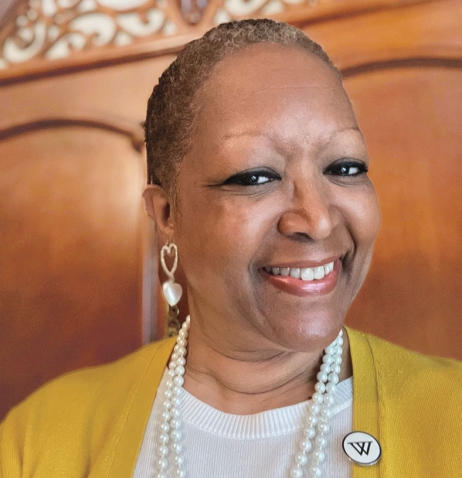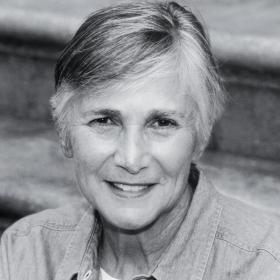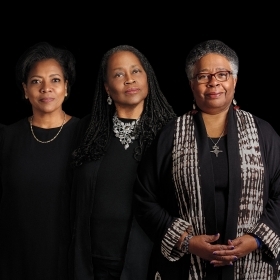When she was growing up in New England, Tamara Nash ’79 was surrounded by role models who highlighted the value of knowledge and higher education. As a child, when she came across a word she was unfamiliar with, her paternal grandmother, who raised Tamara in Providence, R.I., sent her to look it up in the dictionary.
“She always used to say, ‘You must use the King’s English, and understand how important it is to communicate at the highest level of excellence,’” says Tamara, who grew up in a low-income household. “My family taught me that education is the key to success.” It’s not surprising, then, that Tamara has built a career around higher education administration, as well as corporate social responsibility and foundation relations and nonprofit partnerships.
At her all-girls preparatory school, Tamara’s college counselor was a Wellesley alumna who drove her to her campus interview. When she graduated with a major in French, the first in her immediate family to graduate from college, the counselor gave her a gift of a set of sketches of Wellesley that she had received decades earlier from her own mother at graduation.
Tamara’s experience at Wellesley working in a program that provided students with extra academic help piqued her interest in working in higher education. After graduating, she took a job as an undergraduate admissions officer at Brown University and toured the country meeting with prospective students. She left to earn a master’s in education from Harvard, then moved to Washington, D.C.
“I wanted to live in a major international hub where, every day, I could see African Americans in leadership positions,” she says.
She stocked shelves at an FAO Schwarz toy store while looking for a job in education, then joined the admissions staff at Marymount College in Virginia. “My first love is working with students,” she says. Later, Tamara moved to Atlanta to become director of corporate relations and community service at Spelman College, where she designed a corporate mentorship program.
Her experience has also included managing manufacturing company Georgia-Pacific’s community programs, creating the Center for Civic Engagement at Oglethorpe University, which forges opportunities for students in the larger Atlanta community, promoting breast health services at Susan G. Komen Greater Atlanta, and working in development and strategy at Complete College America, a nonprofit that advocates for increasing college completion rates and closing equity gaps. She is currently a consultant based in Atlanta, providing career and life coaching for college students as well as entry level and midcareer professionals.
To get to and through college, underrepresented minorities and low-income students—including first-generation college students—need positive role models and mentors who can guide and advise them, Tamara says, preferably ones who look like them. “They need to be affirmed and reminded how talented they are,” she says.
These students should commit to learning about their own unique heritage and be proud of their background, she says. “When we don’t know who our people are, it’s very difficult to determine who we want to become.”
It’s also about shifting one’s mentality. Tamara kept a map of the world on the wall of her Oglethorpe office to remind herself and students that, globally speaking, as a Black woman she’s not in the minority. “When you’re taught that you’re in the majority, that’s empowering.”
Colleges and universities should work collaboratively with nonprofits and corporations to help low-income students succeed, she says, while ensuring staff and faculty represent a wide variety of ethnicities. Professional development and training are key.
“Changes have to be made to be more accommodating of and sensitive to the needs of students who are not white and privileged,” Tamara says. “Those of us in positions of leadership have a responsibility to do everything in our power to help create better conditions and open doors where they’ve been slammed shut. We have to make sure there’s a welcome mat.”








We ask that those who engage in Wellesley magazine's online community act with honesty, integrity, and respect. (Remember the honor code, alums?) We reserve the right to remove comments by impersonators or comments that are not civil and relevant to the subject at hand. By posting here, you are permitting Wellesley magazine to edit and republish your comment in all media. Please remember that all posts are public.